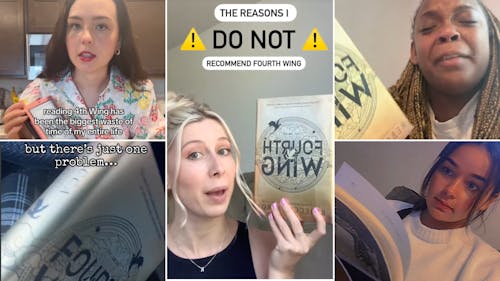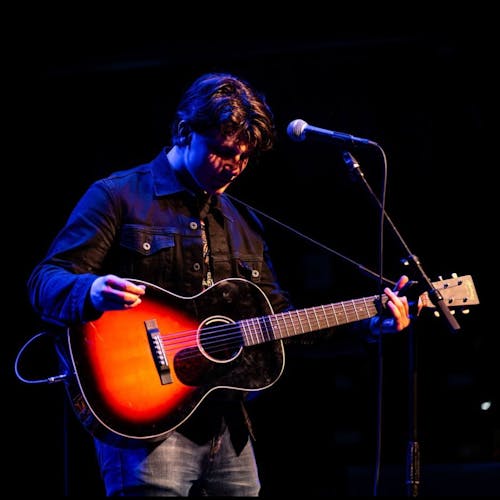Adventures in BookTok: TikTok community grapples with questions of cultural appropriation

One of BookTok’s (TikTok's reading community) more commonly discussed books as of late is "Fourth Wing" by Rebecca Yarros, a new adult fantasy-romance about a cutthroat college for dragon riders.
While it has received generally positive reviews, earning 4.65 stars on Goodreads, it hasn't gone completely without criticism. Namely, this book has started a conversation about how real-life languages and cultures are incorporated into fictional books.
In a now infamous interview, Yarros was asked to give official pronunciations of some of the names in the novel. These included "Basgiath," the dragon-riding college, as well as the names of some of the dragon characters. All of these names are taken from the Scottish Gaelic language. Yarros easily provided these pronunciations, surprising the interviewer, who discovered she hadn’t pronounced the names the way Yarros had intended.
The problem? Yarros' pronunciation of the words was pointedly incorrect, according to native Scottish Gaelic speakers on TikTok.
Even her pronunciation of the word "Gaelic" was not accurate — while the Irish language, commonly known as "Irish Gaelic" in English, uses the "gae-lick" pronunciation, Scottish Gaelic is pronounced like "gah-lick."
Despite the fact that the names of many places and characters in "Fourth Wing" are taken from Scottish Gaelic, it is apparent that Yarros hasn't put in a ton of effort to learn the language.
While Yarros has since admitted she’s not a speaker of the language and shared that she’s gotten a tutor and is working to educate herself, this controversy raises questions about authors' responsibility to accurately represent cultures in their books.
This is a particularly interesting question in fantasy literature like "Fourth Wing," as authors in this genre often create entirely new worlds for their characters. But as a means of worldbuilding, authors like Yarros sometimes borrow from real-life cultures.
The question then becomes: How do you integrate real-world cultural elements into fiction in a respectful way while still making your fantasy world feel new?
Cultural appropriation has become a much-discussed topic in recent years, leading to guides and educational tools on how to borrow elements of other cultures in a way that is respectful and not exploitative.
Often, these conversations revolve around clothing, accessories and hairstyles, as these are some of the main ways people participate in cultural exchange that leads to cultural appropriation.
But the writing community hasn’t ignored the possibility of cultural appropriation being an issue in books. In an article on Medium by Jeannette Ng, she makes the case that authors should focus on centering the cultures they are borrowing from and openly accepting criticism from people who are part of that culture.
Ng also recommends carefully selecting what sources you use to research a culture and being cautious about utilizing ones that perpetuate common misconceptions or stereotypes.
So, while Yarros didn’t do the research she should’ve on Scottish Gaelic for "Fourth Wing," she is taking steps to do better in the future by actively learning more about the language. As Ng recommends, Yarros has accepted criticism from members of the culture and used it to improve.
What can be taken away from this situation is that it’s not wrong to include cultural elements and references in books. It’s just important to take steps to ensure that you do proper research, remain open to making changes and acknowledge that you aren’t an expert on the culture you’re incorporating. That way, your story can have a new and exciting world while also being respectful of the real one the reader lives in.



